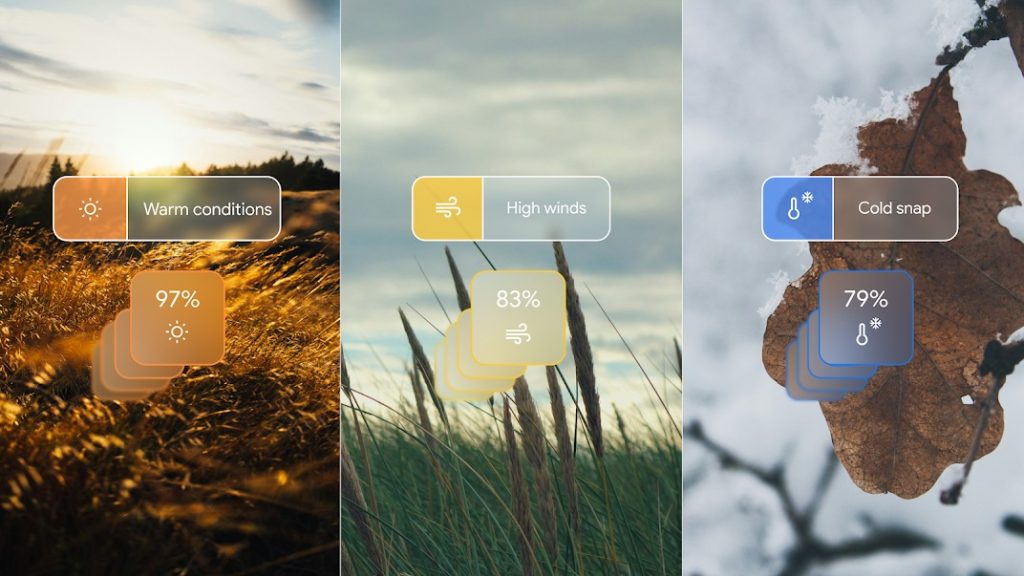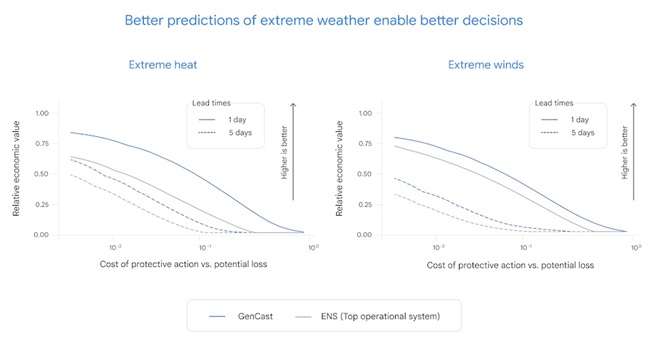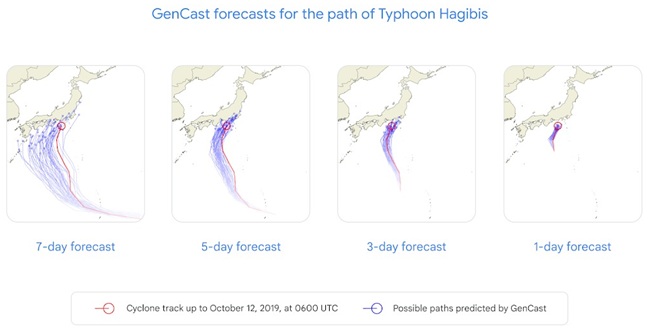
Google DeepMind on Wednesday introduced GenCast, a high-resolution AI ensemble model designed to enhance weather forecasting accuracy. Capable of predicting daily and extreme weather events up to 15 days in advance, GenCast outperforms the European Centre for Medium-Range Weather Forecasts’ (ECMWF) ENS system.
Key Features of GenCast
AI-Powered Ensemble Forecasting
GenCast generates forecasts using an ensemble of 50+ predictions, offering multiple possible weather scenarios. This approach accounts for uncertainties, providing a range of outcomes instead of a single prediction.
Diffusion Model Design
GenCast is based on a diffusion model, similar to those used in image and video generation. However, it is uniquely tailored to Earth’s spherical geometry, enabling accurate mapping of complex weather patterns based on current data.
Training with Decades of Historical Data
The model was trained with 40 years of data from ECMWF’s ERA5 archive, including variables such as temperature, wind speed, and atmospheric pressure across various altitudes.
High-Resolution Accuracy
Operating at a resolution of 0.25 degrees, GenCast delivers precise predictions of weather patterns and extreme events. It outperformed ENS in 97.2% of cases and achieved 99.8% accuracy for forecasts beyond 36 hours.

Efficient Computing with Google Cloud TPU
Using a single Google Cloud TPU v5, GenCast generates a 15-day forecast in just 8 minutes. Forecasts run in parallel, drastically reducing computation time compared to traditional methods that require supercomputers and hours of processing.
Enhanced Forecasting for Extreme Weather
- Improved Predictions: GenCast excels in forecasting extreme events, such as heatwaves, cold spells, high winds, and tropical cyclones (hurricanes and typhoons). More accurate warnings can save lives and reduce property damage.
- Impact on Renewable Energy: The model’s accuracy benefits renewable energy planning, especially wind-power forecasting. Improved predictions enhance wind energy reliability, supporting its broader adoption as a sustainable resource.

Next-Generation AI Forecasting
GenCast is part of Google’s broader AI initiative, which includes tools like deterministic medium-range forecasts, NeuralGCM, SEEDS, and flooding models. These models are already integrated into Google Search and Maps, enhancing predictions for precipitation, wildfires, extreme heat, and flooding.
Collaboration with the Weather Community
Google emphasized the importance of working with weather agencies, meteorologists, and researchers. They plan to continue developing AI-based forecasting methods while retaining traditional models to provide critical training data and initial conditions. These collaborations are essential for improving global weather predictions.
Availability and Future Developments
To foster innovation, Google has made GenCast an open model, releasing its code and weights to the public. They also plan to release real-time and historical forecasts, enabling researchers and organizations to incorporate GenCast into their models.
Google expressed eagerness to engage with the global weather community, emphasizing partnerships that can accelerate research and enhance the model’s impact across commercial and non-commercial sectors.
